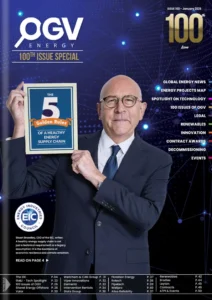Some in Washington now expect that China will vacuum up much of the Iranian oil that other nations won’t buy because of the threat of U.S. sanctions, according to a senior U.S. government energy official.China buying extra Iranian oil could dull the economic impact of those sanctions. It could also bring Iran closer to China at a time of elevated tensions between Washington and Beijing over trade.In May, President Donald Trump pulled the U.S. out of the 2015 Iran nuclear deal and vowed to reimpose sanctions on Tehran.Oil prices jumped sharply higher in reaction and if China does take spare Iranian crude that could add to pressure currently pushing crude lower, traders say.In anticipation of sanctions, foreign oil companies are already exiting Iran and international banks have declined to finance oil trades. While the European Union doesn’t back renewed sanctions, countries including Greece and Turkey, are winding down their purchases.But China, already the largest buyer of Iranian oil, is gearing up to take more. Tehran is currently in negotiations with Chinese companies to ensure that, according to an Iranian oil official involved in those talks.“We don’t have any problem selling our oil” to China, the Iranian official said.The White House referred calls to the U.S. National Security Council, which didn’t respond to s seeking comment.China’s Foreign Ministry and the country’s two biggest oil companies, China National Petroleum Corp. and China Petrochemical Corp., didn’t respond to requests for comment. In the past Beijing has decried the U.S.’s resort to unilateral “long-arm” sanctions in international dealings. Having initially indicated the goal was to reduce Iranian exports to zero, the U.S. government has tempered its expectations.Last week, U.S. Secretary of State Mike Pompeo said the U.S. would consider Iran sanctions relief for a “handful” of countries. South Korea, India and a handful of other countries had a waiver to buy Iranian oil during the last round of sanctions.But Washington has also said that it will pursue Chinese companies with U.S. connections if they violate Iran sanctions.“It is our intent to enforce sanctions on Iran related oil against everybody including China,” U.S. Treasury Secretary Steven Mnuchin told the House Financial Services Committee last week.To be sure, not everybody in the Trump administration believes China will increase Iranian imports, said a former U.S. official briefed by current members of the administration.Lower demand because of sanctions will make Iranian oil cheap at a time when two of China’s other traditional suppliers, Libya and Venezuela, are struggling. China’s rising needs could allow it to buy more oil from Iran without moving away from other suppliers, such as Saudi Arabia. The world’s No. 2 economy is expected to need an extra 500,000 barrels a day in 2018 and 400,000 barrels a day in 2019, according to the International Energy Agency’s latest monthly report.China has made clear it doesn’t support Mr. Trump’s resumption of sanctions. It supported the United Nations’ 2010 sanctions and reduced its imports of Iranian oil by over a quarter at points.To get around sanctions, China will likely facilitate purchases through a bank it has historically used for dealing with Iran during previous sanctions, a French official and the senior U.S. official said.Banks are wary of financing Iranian trade for fear of hurting their access to the dollar. But Bank of Kunlun Co Ltd, a unit of China National Petroleum Corp, has very limited exposure to the global financial system, so is well placed to continue dealing with Iran.The Central Bank of Iran has accounts at Kunlun into which Chinese buyers have paid the equivalent of billions of dollars for oil, people familiar with the matter said. That money is used by the Iranians to buy Chinese goods.Kunlun didn’t respond to requests for comment.China sees Iran as pivotal in its effort to extend economic influence through its one belt, one road initiative and is investing heavily in infrastructure such as railroads and roads in the country.China is already Iran’s biggest trading partner.After Mr. Trump announced plans to reinstate sanctions in May, Iran’s Foreign Minister Javad Zarif’s first visit was to Beijing.
Published: 18-07-2018














